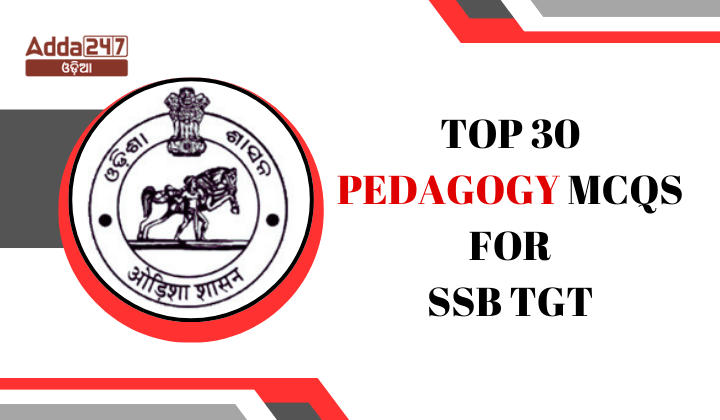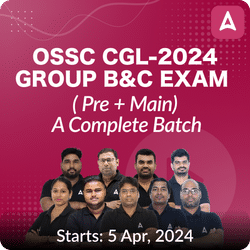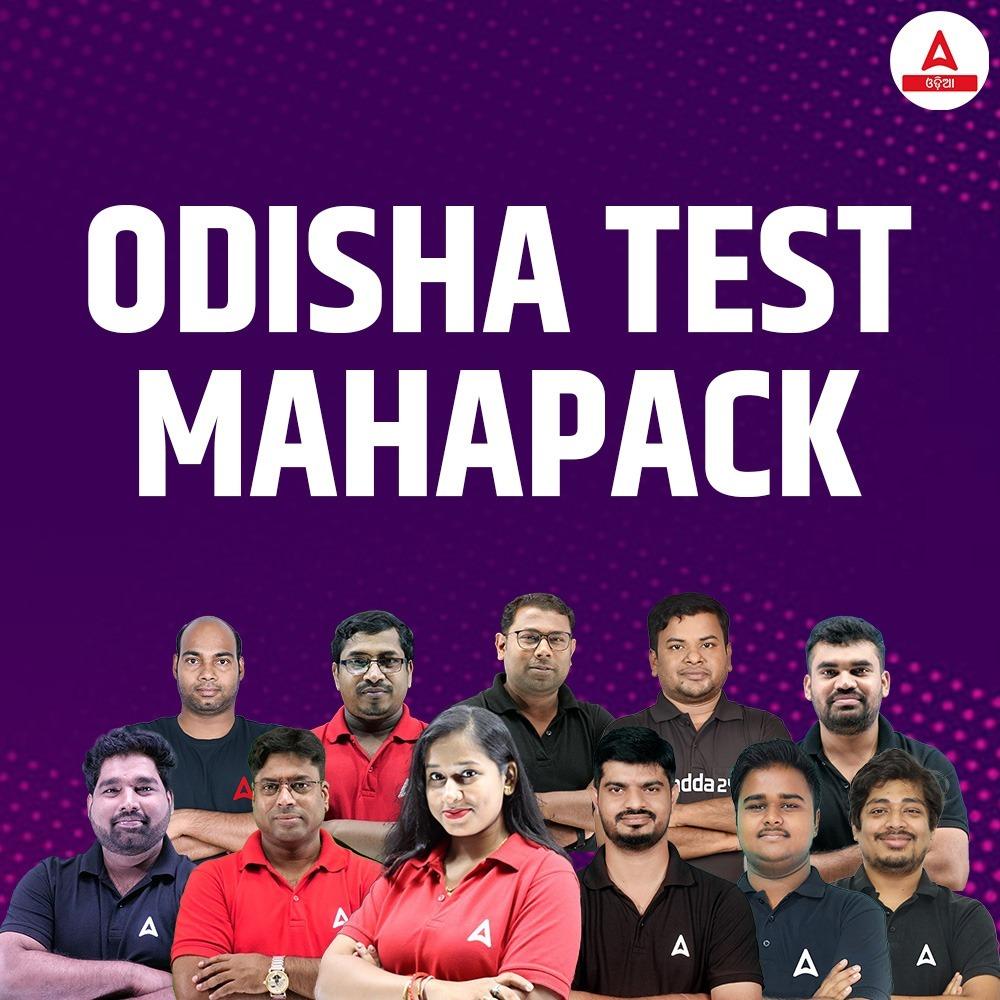Preparing for the State Selection Board, Odisha TGT examination requires a comprehensive understanding of various subjects, including pedagogy. Pedagogy, the art and science of teaching, is a crucial aspect of the TGT exam, evaluating candidates’ knowledge of teaching methodologies, principles, and practices. To help you ace this section, we’ve compiled the top 30 Multiple Choice Questions (MCQs) on pedagogy, covering essential concepts and theories.
Top 30 Pedagogy MCQs for SSB TGT
Mastering pedagogy is essential for success in the SSB TGT examination. By thoroughly understanding these top 30 MCQs and the underlying concepts they represent, you’ll be well-equipped to excel in this crucial section of the exam. Remember, continuous practice and application of pedagogical principles will not only help you pass the exam but also make you a more effective educator in the future. Best of luck!
- According to John Dewey, what is the primary responsibility of schools?
(A) Future life preparation
(B) Entrepreneurship
(C) Present life preparation
(D) Research
Answer: (C) Present life preparation - According to psychologist Edward Thorndike, learning involves responding to:
(A) Analysis
(B) Change
(C) Experiment
(D) Stimuli
Answer: (D) Stimuli - What is the term for the process of breaking down information into its components for examination and understanding?
(A) Evaluation
(B) Synthesis
(C) Analysis
(D) Application
Answer: (C) Analysis - Bloom’s taxonomy in education primarily deals with learning and ________ methods.
(A) Assessment
(B) Grading
(C) Applications
(D) Memorizing
Answer: (A) Assessment - What is the ability to use new and creative applications of prior knowledge and skills called?
(A) Evaluation
(B) Synthesis
(C) Analysis
(D) Application
Answer: (B) Synthesis - In general, the most recent response is most likely to:
(A) Forget
(B) Be compromised
(C) Reoccur
(D) Not occur again
Answer: (C) Reoccur - What three principle capacities does the “Waldorf Education System” aim to cultivate in children?
(A) Thinking, planning, acting
(B) Thinking, feeling, willing
(C) Observing, thinking, analyzing
(D) Observing, listing, calculating
Answer: (B) Thinking, feeling, willing - Which common technique helps people initiate the creative process?
(A) Calculations
(B) Brainstorming
(C) Thoroughness
(D) Mental shortcuts
Answer: (B) Brainstorming - According to the idea of “pragmatism in educational philosophy,” education should focus on:
(A) Virtue
(B) Obedience
(C) Life and growth
(D) Shaping good citizens
Answer: (C) Life and growth - An aspect of pragmatism is experiential learning, which emphasizes education through:
(A) Experience
(B) Practice
(C) Knowledge
(D) Observations
Answer: (A) Experience - Progressivism posits that children learn best in a/an:
(A) Community
(B) Competitive environment
(C) Isolation
(D) Closed environment
Answer: (A) Community - The truth of the conclusion of an inductive argument is:
(A) Certain
(B) Based on experience
(C) Based on observation
(D) Probable
Answer: (D) Probable - What does “Pedagogy” literally mean in Greek?
(A) To understand the child
(B) To guide the child
(C) To educate the child
(D) To lead the child
Answer: (D) To lead the child - What does “Pedagogy” primarily study?
(A) Education
(B) Learning process
(C) Teaching methods
(D) Guiding students
Answer: (C) Teaching methods - Which philosopher worked extensively in mathematical and scientific didactics?
(A) Jean Piaget
(B) John Dewey
(C) Martin Wagenschein
(D) Lev Vygotsky
Answer: (C) Martin Wagenschein - What is the use of technology to enhance the learning process called in education?
(A) IT
(B) ICT
(C) Information technology
(D) Communication technology
Answer: (B) ICT (Information and Communications Technology) - What is a scoring guide used to evaluate the quality of students known as?
(A) Rubrics
(B) Checklists
(C) Inventories
(D) Rating scales
Answer: (A) Rubrics - According to John Dewey, education is a ________ process, and school is a ________ institution.
(A) social, social
(B) social, philosophical
(C) philosophical, philosophical
(D) environmental, psychological
Answer: (A) social, social - What does the concept of teaching the whole child in “philosophy of pragmatism in education” primarily aim at?
(A) learners
(B) thinkers
(C) scientists
(D) citizens
Answer: (D) citizens - What tends to decline as people grow older?
(A) speed of learning
(B) power of learning
(C) quality of learning
(D) quantity of learning
Answer: (A) speed of learning - Which of the following should be utilized to increase correct responses and appropriate behavior by students?
(A) Praise
(B) Reward
(C) Ignorance
(D) Strictness
Answer: (A) Praise - Which of the following should be employed to decrease minor inappropriate behavior by students?
(A) Praise
(B) Reward
(C) Ignorance
(D) Strictness
Answer: (C) Ignorance - Who authored the book Emile or “On Education” on the nature of education and man?
(A) Aristotle
(B) Plato
(C) John Dewey
(D) Rousseau
Answer: (D) Rousseau - According to Emile, what is considered the noblest work in education?
(A) good citizen
(B) reasoning man
(C) thinker
(D) entrepreneur
Answer: (B) reasoning man - Defense mechanisms serve to shield the ego from the unrestrained expression of Id impulses and opposing:
(a) Superego directives
(b) Death Instinct
(c) Lie Instinct
(d) Unconscious mind
Ans. (a) Superego directives - Neurotic anxiety arises when there’s an emotional reaction to a threat to the ego, signaling potential intrusion of impulses into:
(a) Consciousness
(b) Unconsciousness
(c) Subconsciousness
(d) Superego
Ans: (a) Consciousness - Example: “Following a spat with her husband, a young woman seeks solace at her parents’ house, regressing to childlike behavior,
letting her parents cater to her every need.”
(a) Repression
(b) Regression
(c) Fixation
(d) Reaction Formation
Ans. (b) Regression - The final stage of psychosexual development is the:
(a) Phallic Stage
(b) Genital Stage
(c) Oral Stage
(d) Anal Stage
Ans. (b) Genital Stage - Sigmund Freud emphasized the significance of the first three stages of psychosexual development, occurring in the first 5 or 6 years of life, in shaping:
(a) Intelligence
(b) Personality
(c) Emotion
(d) Ego
Ans. (b) Personality - The “Superego” corresponds to what is commonly referred to as the:
(a) Conscience
(b) Personality
(c) Libido
(d) Narcissism
Ans. (a) Conscience





